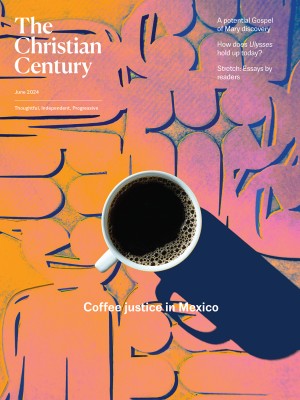June 9, Ordinary 10B (1 Samuel 8:4–11, (12–15), 16–20, (11:14–15))
Samuel is a good leader, until he isn’t.
The people must have been so disappointed in Samuel. He comes into his leadership role as a prophet and judge instead of the sons of Eli, who are corrupt. For all the years of his life, Samuel is a trusted leader of Israel. He goes on a circuit from town to town as a judge. He leads the people militarily, making sacrifices to God and gaining God’s support in battle (1 Sam. 7:6–16).
Samuel is a good leader. Until he isn’t. When Samuel has grown old, he appoints his sons, Joel and Abijah, to be his successors. Joel and Abijah don’t rule and lead as Samuel did. They have more in common with Eli’s sons, Hophni and Phinehas, than with Samuel himself. Hophni and Phinehas steal temple offerings by force and assault the women who serve at the tent of meeting. Similarly, Joel and Abijah pursue their own gain, take bribes, and pervert justice. Things are not looking good for the people who live under the leadership of Samuel’s sons. What happened to Samuel’s ethical compass between delivering a prophetic message about the demise of Eli’s family because of the immorality and greed of Eli’s sons and appointing his own rogue sons as the next leaders of Israel?
Read our latest issue or browse back issues.
Samuel’s decision to appoint his sons as leaders and judges shines a light on his human fallibility. The people see it too, and they want out of this system of leadership based on judges who appoint their own greedy children to take over. When they got Samuel instead of Hophni and Phineas, maybe they thought they were done with that problem. But here it is, happening again.
The people’s proposed solution to the problem, however, only creates new problems. A king will be liable to the same failures and worse. A change of leadership will not ensure justice. For justice we need a change of heart. For justice we need to confront wrongdoing. For justice we need ways to hold people accountable.
The people then—like us now—are faced with moral dilemmas and fears for their own survival. We have desires for our own flourishing, yet we are faced with the ethical challenges of human tendencies. Samuel succumbs to the desire to lift up his own sons rather than care for the well-being of all the people. In a way, the people’s response, in calling for a king, has a similar tenor. They want a king so that they can succeed in battle against other peoples. It is another story of us versus them. For their own sense of security, they are willing to be slaves to a king. It recalls the people’s response to God when they are hungry and in danger in the wilderness after escaping slavery in Egypt. It would be better to be slaves in Egypt than to die in the wilderness, they say (Exod. 14:12, 16:3).
The fantasy of having a strong king includes the mistaken idea that a strong king will care about me and us. A strong king will unite us and conquer our enemies, the story goes; a strong king will make us strong. But Samuel tells a different story: that a strong king will make himself strong and take from us all that we value, including our freedom, our wealth, our property, and even our loved ones. We, the people, will not flourish under a king. Only the king and the king’s loyalists will flourish, and then only as long as they also benefit the king and the king’s power. (Historian Timothy Snyder reflects on similar issues in his March 16 newsletter.)
How might things have gone differently if Samuel had not appointed his own wicked sons to become the next leaders? Or what if the people had believed Samuel’s warnings about the greed of a king and changed their request to a demand for justice and a new servant-oriented leader? And when the humility of such a leader became compromised, how could the people course correct? There are plenty of examples of us versus them mentality tearing people apart, but there is also lots of evidence of humans caring for each other, working together, and collaborating for survival and mutual flourishing.
When the people find a new vision and use their power collectively, perhaps a king is not necessary for survival. Maybe starvation in the desert and slavery in Egypt are not the only two options. God’s story, our story, is a long one, and we are only in the middle of it. Now is a time to heed Samuel’s warnings. Now is a time to utilize all of our resources—our energy, intelligence, imagination, and love—to work toward God’s dreams for our world. That will be a world in which wealth is shared, justice is done, accountability is maintained, and the abundance and beauty of God’s creation are honored.





